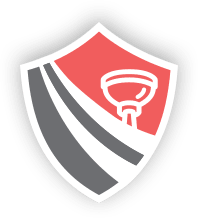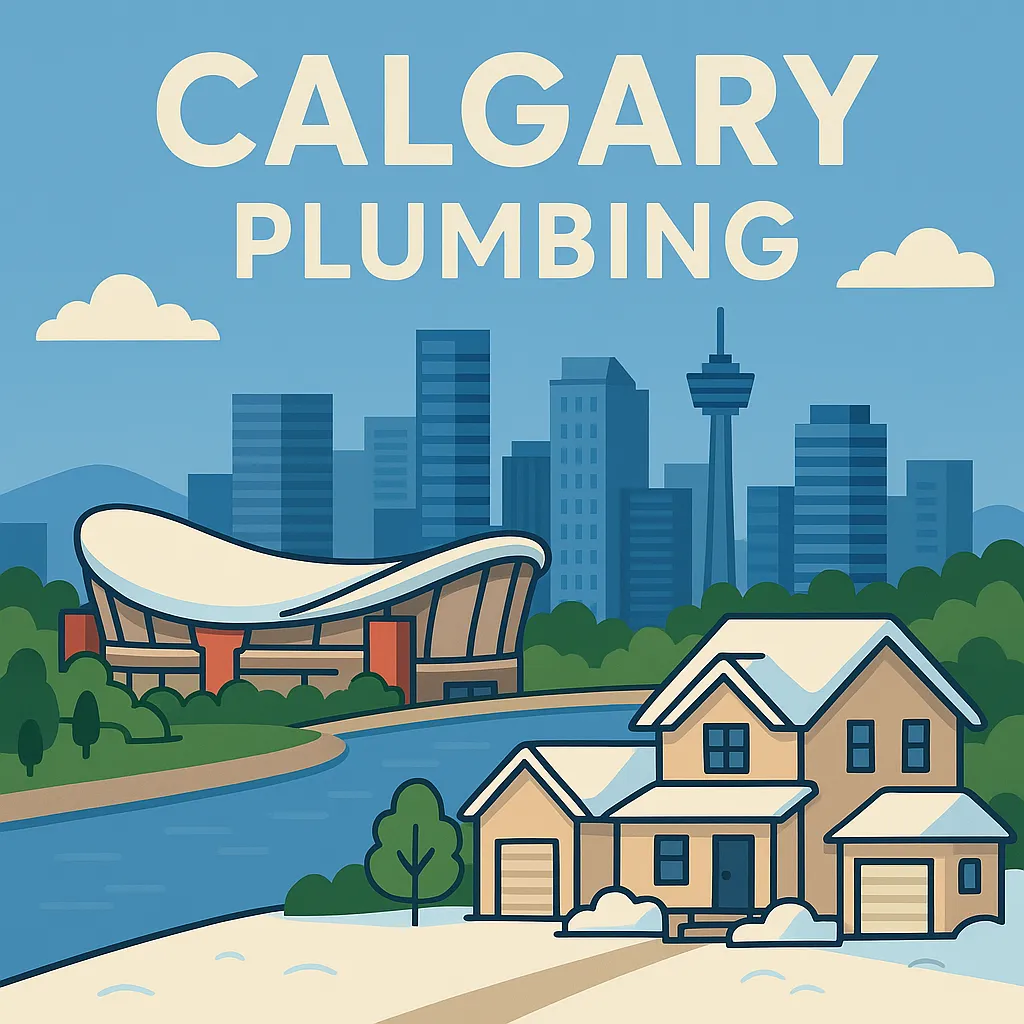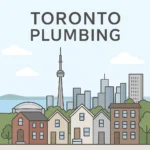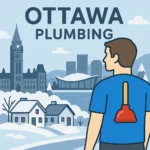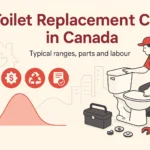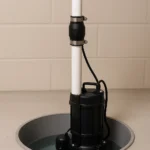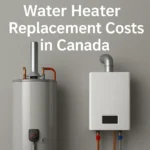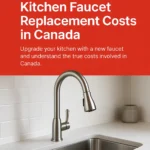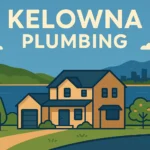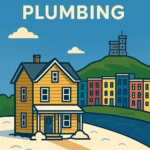Introduction
Calgary is the largest city in Alberta, home to more than 1.3 million residents. With long, cold winters, a dry climate, and hard water, plumbing systems in Calgary face very different stresses than in Vancouver or Toronto. From frozen pipes to limescale buildup, Calgary homeowners need proactive plumbing care. This guide covers water quality, housing stock, common issues, seasonal risks, costs, and permits—plus a real-world case study.
Water Source, Quality & Hardness
- Water source: Calgary’s drinking water comes from two rivers:
- Bow River → Bearspaw Treatment Plant (north Calgary).
- Elbow River → Glenmore Treatment Plant (south Calgary).
- Reservoir: The Glenmore Reservoir stores and supplies water for much of the city.
- Hardness: Calgary’s water is hard to very hard—ranging from 7.4 to 15.3 gpg depending on location and season (City of Calgary).
- ⚠️ Leads to scale buildup in kettles, dishwashers, showerheads, and hot water tanks.
- ✅ Scale can coat pipes, offering slight protection from corrosion.
- Many homeowners install water softeners to protect fixtures and appliances.
- Quality: Water meets or exceeds Alberta and Health Canada standards.
Housing Stock & Plumbing Factors
- Heritage homes (Inglewood, Ramsay): Some still use cast iron or galvanized pipes, prone to corrosion.
- Post-war suburbs (Bridgeland, Bowness, Mount Pleasant): Copper plumbing and clay sewer laterals now aging out.
- New suburbs (Evanston, Mahogany, Seton): Modern homes with PEX piping, but still affected by Calgary’s hard water.
- Acreages outside city: Often rely on private wells or septic systems, requiring different maintenance.
Common Plumbing Issues in Calgary
- Hard water scaling
- Minerals deposit on fixtures, clog aerators, and shorten appliance lifespans.
- Hot water tanks often fail early without softeners or regular flushing.
- Frozen pipes and bursts
- Severe winter cold (often below –20 °C) freezes uninsulated or exterior plumbing.
- Burst repairs are costly and disruptive.
- Clogged or slow drains
- Hair, grease, and scale buildup are common culprits.
- Hot water tank failures
- Sediment buildup at the bottom of tanks reduces efficiency and causes leaks.
- Basement seepage or backups
- Spring melt and sudden rainstorms can overwhelm sump pumps or perimeter drainage.
Seasonal Considerations
- Winter: Extreme cold = frozen or burst pipes. Insulation and heat tracing recommended.
- Spring: Snowmelt increases groundwater, straining sump pumps and drains.
- Summer: Intense thunderstorms can overwhelm storm sewers, risking basement backups.
- Year-round: Hard water scaling is constant, regardless of season.
Plumbing Costs in Calgary
Plumbing costs in Calgary are slightly higher than Vancouver, with a minimum service call of $300 before tax.

| Service | Low | Typical | High |
|---|---|---|---|
| Unclog a drain | $300 | $400 | $700+ |
| Replace a faucet | $300 | $450 | $850+ |
| Hot water tank replacement | $1,400 | $2,000 | $3,500+ |
| Emergency after-hours call | $450 | $700 | $1,200+ |
⚠️ Estimates disclaimer: Prices exclude after-hours premiums, permits, and materials.
Local Regulations & Permits
- Permits required: Plumbing permits are mandatory for new installations, drainage changes, and most replacements.
- City resources:
- Contacts:
- General info and inspections: Call 311 within Calgary.
- Plumbing & Gas Inspections booking: available online or via 311.
Case Study: Winter Pipe Burst Prevention in Varsity
A Calgary homeowner in Varsity faced repeated frozen pipe issues in their garage line. After a burst in 2020 caused thousands in damages, they invested in pipe insulation, a heat trace cable, and rerouting exposed plumbing. The upgrades cost less than $2,000 but saved them from another costly flood during the –30 °C cold snap of 2021.

FAQs (Calgary-specific)
Is Calgary water hard or soft?
It’s hard to very hard (7.4–15.3 gpg), depending on your area and season.
Do I need a water softener in Calgary?
Not required, but highly recommended to protect appliances and fixtures from scaling.
How do I prevent frozen pipes?
Insulate exposed plumbing, disconnect outdoor hoses, and consider heat trace cables for vulnerable lines.
Do I need a permit for plumbing renovations in Calgary?
Yes, permits are required for new installations, major replacements, and drainage work.
Who do I call for plumbing inspections or emergencies?
Call 311 in Calgary for inspections, permits, and water-related emergencies.
Tips for Calgary Homeowners
- Install a water softener or flush hot water tanks regularly.
- Insulate crawlspace and garage pipes before winter.
- Maintain sump pumps and backwater valves for spring melt.
- Replace galvanized or cast iron pipes before leaks occur.
- Check drainage around your home to avoid basement seepage.
Conclusion
Calgary’s extreme climate and hard water make plumbing maintenance especially important. From frozen pipes in winter to scale buildup year-round, homeowners can save money and avoid emergencies with proactive care.
👉 Book a licensed plumber in Calgary today at unclogit.com or call 604-496-1661.
